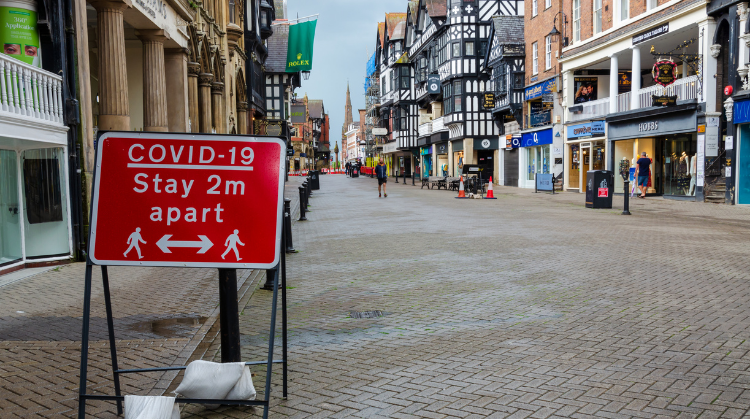Researching public understanding of COVID-19 restrictions

Image credit: John David Photography / Shutterstock.com
A team from the School of Languages and Applied Linguistics (LAL) in WELS is undertaking new research into how language can shed light on how ideas of “right” and “wrong” emerged in language, in relation to government guidance on social distancing and face-coverings.
Led by Professor Rosina Márquez-Reiter, the team has been awarded £5,000 to analyse how the police, members of the general public, and broadcasters discuss compliance and non-compliance with Government guidelines on behaviour in traditional and social media.
Understanding responses to changing guidelines
Social distancing and lockdown guidance has led to unprecedented changes to everyday life. People’s behaviour has become open to scrutiny more than ever and because government guidelines do not cover all circumstances, “acceptable behaviour” during the pandemic can become open to interpretation.
The researchers will look at how the public, police, and media share examples of breaches in social distancing and face-covering rules, as well as of “good practice” in order to examine how boundaries are defined and redefined in response to changing guidelines. They will analyse a sample of conversations from traditional media, like radio phone-ins and from social media comments, that took place between March and September 2020 to uncover how this has happened in relation to COVID-19 governmental social distancing guidelines.
Professor Márquez-Reiter said,
“By focusing on public understandings of government guidance, the findings of this project will benefit a range of stakeholders, including the police, communication advisors, and members of the government. It will offer important data on what clear communication guidelines should consist of in national emergencies for successful public uptake.”
The study will create a searchable database that can be used in future research and initial findings of the analysis will form part of a workshop with the OU’s Centre for Policing Research and Learning.
Are you already an OU student?
Request your prospectus
Explore our qualifications and courses by requesting one of our prospectuses today.
Request prospectus